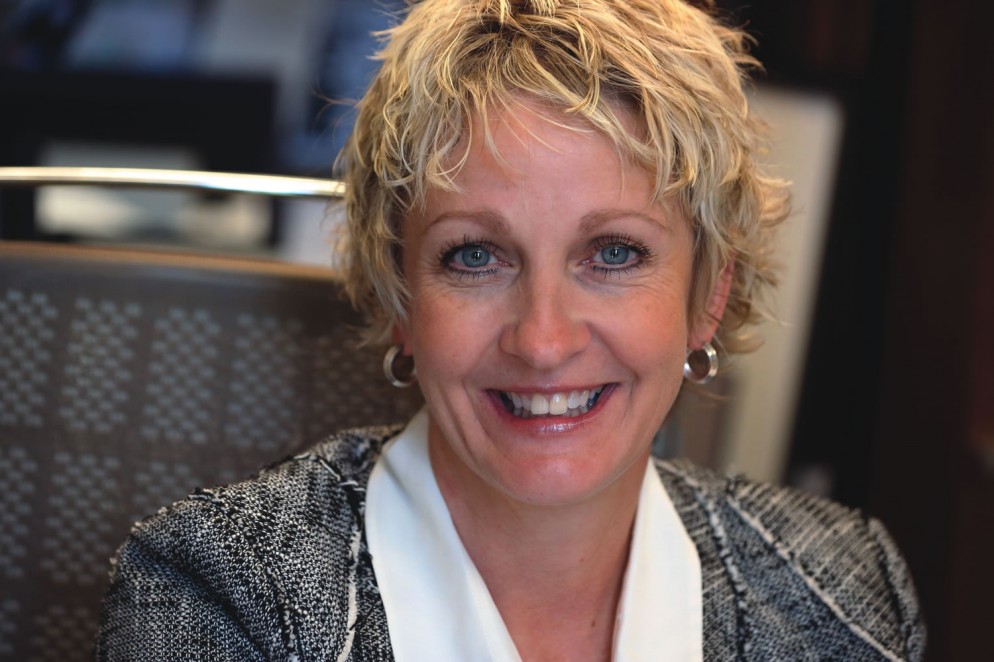Dear Alumni, Parents, and Friends of Colorado College,
Along with a few others, I was recently asked the following question: What is most on your mind right now as president of a liberal arts college?
My answer was two-fold. As an economist, it concerns me that the growing emphasis (especially from the federal government) on affordability, job preparation, and student loan debt and default is shifting the focus from what we do best — providing a liberal arts education that nurtures creativity and innovation at a level that few other institutions on this planet can match. While we must certainly pay close attention to these matters, which CC is doing, I also believe we need to do a better job of differentiating the many types of higher education options available and clearly demonstrating the benefits of a liberal arts education.
On the other hand, I replied that our long-term emphasis on innovation, as evidenced by the Block Plan, places the college in a strong position. Now the strategic plan extends that strength even further. Colorado College is fortunate to be among a small number of liberal arts colleges that are thriving despite the tough conditions our sector of higher education is facing. We find ourselves in the enviable position of occupying a distinctive place in higher education and of satisfying some of today’s most important objectives (recently stated by the Mellon Foundation): “to educate global citizens; to enable students and faculty to cross disciplinary boundaries; to provide opportunities for undergraduate research, internships, and community-based learning; and to integrate digital technology and cross-disciplinary pedagogies into a problem-based curriculum.” With this plan, we are building on our strong record of developing human potential — one undergraduate at a time.
Because of the intense focus of the Block Plan on intimacy, rigor, and individual attention, CC provides a superb academic experience for adventurous learners and teachers. More and more of today’s students possess the technological and multi-tasking savvy to approach complex questions, but need to develop the abilities to concentrate deeply, collaborate with diverse groups of people, and communicate well. Because this is exactly what the block environment promotes, students not only develop a more complete understanding of the subject they are exploring, but they also increase their appreciation of each other’s cultures, experiences, and points of view.
To help bring greater attention and resources to these areas, our plan calls for, among other things, a new Center for Immersive Learning and Engaged Teaching. This addition to the campus will be a place where students, faculty, staff, and alumni come together to discover, share, and find support for new ideas. We also intend to reach new constituencies by redesigning our summer and January half-block program. The summer offers a rich opportunity to link courses around themes such as film, arts, pre-med, sports, foreign languages, environmental education, and geology. Students will get hands-on experience with internships and meet professionals face-to-face in the context of a dynamic liberal arts environment. During the nine-day half block in January, students can prepare for the future through short courses in such areas as analytics software, choice of majors, personal finance, and writing fellowship proposals or resumes. In other half blocks, students can reflect on study-abroad programs and Venture Grant experiences, building on meaningful time spent off campus.
In addition, a new Innovation institute will offer students and faculty a place to go from theory to idea to practice, while showcasing students’ cutting-edge work on social, environmental, and global issues. Of course, this innovation won’t be limited to the institute, but rather will extend to academics, the residential program and its integration into he curriculum, and the very landscape itself. Both the institute and he center will involve alumni and the global community in meaningful ways.
Rather than waiting for funds to be raised, we have already created several action teams of faculty members, students, and staff, who are launching pilot projects to demonstrate success with the kind of work the Center and the Institute will promote on campus. Similar groups are moving forward with other ideas in the plan. This pilot work will build on the energy our planning process unleashed to further each major goal of the projects.
We are confident that the ideas in our ambitious strategic plan will grow with input and action from students, faculty, staff, alumni, parents, and friends. While we continue to feel the effects of the global recession and address issues of affordability, we also believe in the great future ahead for our students — in their professional, civic, and personal lives — because of the liberal arts experience they receive at Colorado College.
With warm regards,
Jill Tiefenthaler
